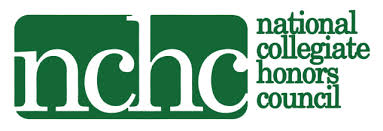Forbidden Voices: Censored in America
Seminar - UHON 301
Instructor(s): Richard Obenauf
Course Description
Almost everything worth reading has at some point been censored by someone who deemed it dangerous.
But what makes an idea dangerous? What gives someone the power to determine what you should hear, see, read, or say—or what you can’t hear, see, read, or say? In a nation founded on principles of equality, freedom, and tolerance, why should anyone have the power to control what you can think? And what can you do about it?
This class is centered on some of the most famous examples of American censorship and includes content that is sure to offend everyone. We will celebrate the right to read by hearing authors speak their truths in their own words as we attempt to understand the debate over censorship, democracy, and the First Amendment. Students should be prepared to encounter content that they may find blasphemous, offensive, obscene, or otherwise problematic.
Texts
We will begin with classics by Rudolfo Anaya, Charles Darwin, Frederick Douglass, George Orwell, John Steinbeck, Mark Twain, and Walt Whitman. Students will then build on the principles we have explored in class to set their own curriculum for the last six weeks of the semester. We may choose to discuss movies, current events, Supreme Court cases, or works by Sherman Alexie, Margaret Atwood, Alison Bechdel, Ray Bradbury, Lenny Bruce, George Carlin, Allen Ginsberg, Toni Morrison, George Orwell, Salman Rushdie, Angie Thomas, Kurt Vonnegut, or anyone else who has been censored in America.
Requirements
Consistent attendance and active participation are expected. Students will keep a reading journal, which will form the basis for a series of short reaction papers. There will be one shorter research paper and a creative final project. At some point, each student will be expected to help lead discussion.About the Instructor(s): Richard Obenauf
Richard Obenauf earned his BA at the University of New Mexico and his MA and PhD in Medieval and Renaissance English Language and Literature at Loyola University Chicago. A scholar of censorship, tolerance, and intolerance, he is interested in the relationship between freedom of speech and democracy.



Social Media
For news, information, prizes and more fun stuff follow us on our social media!
Honors College Resources